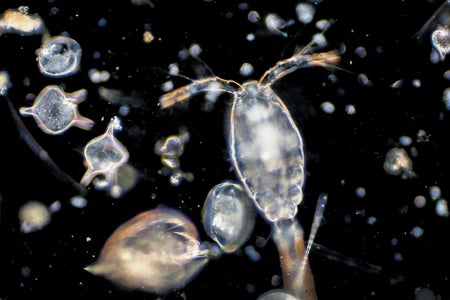
Greatest Migration on Earth Happens under Darkness Every Day
Trillions of tiny animals may be coordinating their movements in ways that affect every organism on the planet
Katherine Harmon Courage is an independent science journalist and contributing editor for Scientific American. She is author of Octopus! The Most Mysterious Creature in the Sea (Current, 2013) and Cultured: How Ancient Foods Feed Our Microbiome (Avery, 2019).

Greatest Migration on Earth Happens under Darkness Every Day
Trillions of tiny animals may be coordinating their movements in ways that affect every organism on the planet

‘Ambiguous Loss’ from Miami-Area Condo Collapse Makes Grieving Harder
In a Q&A, loss expert Pauline Boss talks about coping with extreme uncertainty in the wake of a disaster

COVID Has Put the World at Risk of Prolonged Grief Disorder
COVID deaths are leaving millions bereaved. For some, the intense grief never recedes, making daily life almost impossible

COVID-Overwhelmed Hospitals Strain Staff and Hope to Avoid Rationing Care
There are times when critically ill patients must wait for beds, and some facilities have contingency plans to limit scarce supplies to certain patients

The First Subway in New York City Was a Cylindrical Car Pushed by Air
Scientific American editor Alfred Ely Beach revealed the secretly built wonder in 1870

Scientific American vs. the Supernatural
This magazine launched a contest to prove, or disprove, the existence of ghosts
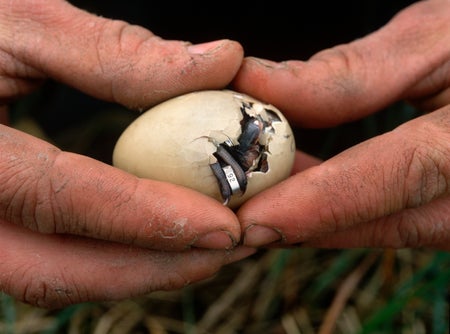
Coronavirus Disrupts Vital Field Research—Including Disease Transmission Work
Scientists across the globe have been cut off from sites and experimental resources—or stranded abroad

The Social Genius of Animals
Research shows that animals interact in amazingly sophisticated ways
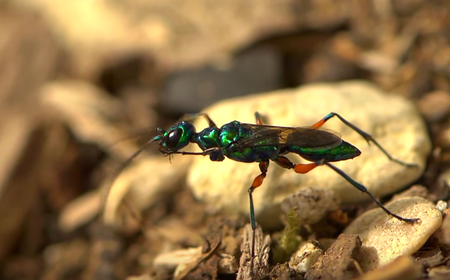
Watch a Wasp Take Control of a Cockroach’s Brain [Video]
A video captures the dark side of insect mind control

Childhood Cancer Risk Hides in Families
Genome study finds mutations passed on from parents are linked to at least one in 12 cancers in kids

Animals Have More Social Smarts Than You May Think
New research reveals that animals interact in surprisingly sophisticated ways
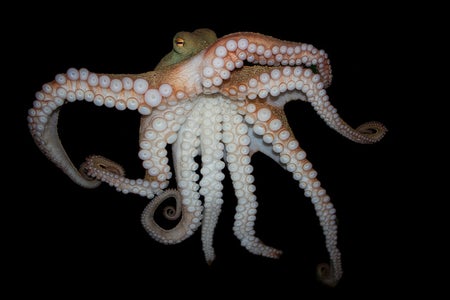
Octopus Genome Reveals Secrets to Complex Intelligence
The largest invertebrate genetic code unleashes clues to camouflage, suckers, evolution

Treating Koala STDs May also Quash Their Essential Gut Microbes
Koalas rely on specialized bacteria to digest eucalyptus, but antibiotics to stop sexually transmitted infections might be killing the microbes off
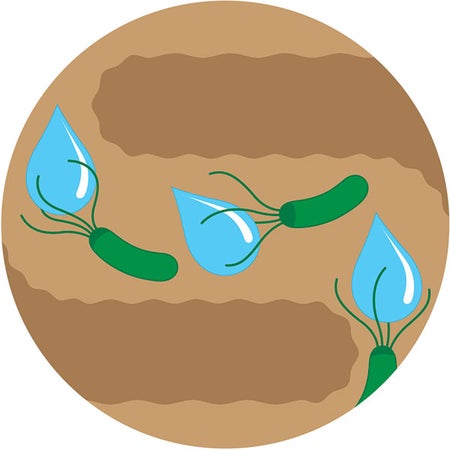
Gut Microbes May Help Determine Our Immune Response to Vaccines
New studies find the type, number and diversity of bacteria could influence vaccine response rates for rotavirus, tetanus and more in kids

Humanoid Robo-Clerk Not Fooling Shoppers Just Yet
A lifelike, if stilted, robot makes her debut at a Japanese department store, while a smaller bot is ready to answer questions at a local bank

Fiber-Famished Gut Microbes Linked to Poor Health
While probiotics receive more attention, key fibers remain the workhorses in maintaining a healthy gut microbiome

The Social Genius of Animals
New research reveals that animals interact in surprisingly sophisticated ways

Farewell from Octopus Chronicles—And an Ode To a Tool-Wielding Octopus
Today, after more than three years, I must bid farewell to Octopus Chronicles on ScientificAmerican.com. It has been a wild, weird, and fun run.

Octopus Genome Remains Elusive—But Full of Promise
As many mysteries as the octopus holds—its comprehensive camouflage, smart suckers, agile brain—its genome is surely holding many more (including how it can regenerate its arms—suckers, nerves and all).

There Are Plenty of Octopuses In the Sea—Or Are There?
First a moment to celebrate Octopus Chronicles‘ 100th post! Little could I have imagined when I started this blog in November 2011 that there would be so much amazing octopus research to cover—and so many wonderful readers.

7 Surprising Things Penguins of Madagascar Gets Right About Octopuses—And 4 It Gets Wrong
It’s not very often that a movie comes out that features an octopus as one of the main (speaking) characters. (And they only occasionally become the star of a video game.) So if you wouldn’t mind indulging me for a brief detour into animation territory, let’s see what Hollywood gets right (and wrong) about this [...]

Rare Octopuses Get Their Close-Up
There are some 300 known species of octopus. From the huge giant Pacific octopus (Enteroctopus dofleini) to the tiny poisonous blue-ringed octopus (genus Hapalochlaena), from the shallow-water mimic octopus (Thaumoctopus mimicus) to the deep-sea Dumbo octopus (genus Grimpoteuthis).

Soft Octopus Escape—and Paperback Octopus! Release [Video]
Octopuses long ago shed their ancestors’ protective shells in favor of a slinkier, floppier, softer existence. They were perhaps never meant to be held down by hard covers.

Octopus Play and Squid Eyeballs—And What They Can Teach Us About Brains
For cannibals, octopuses seem to be surprisingly fun loving. Some have been observed using their funnels to repeatedly blow objects around in their tanks.